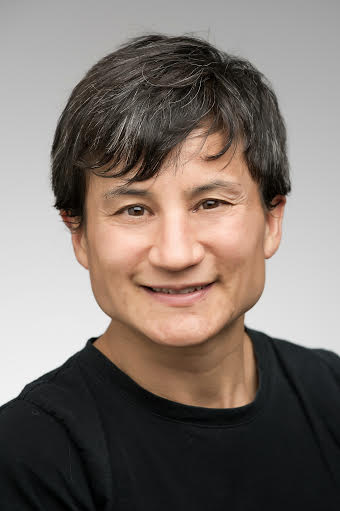New President's Professor in Energy: Mariko Shirazi
January 9, 2018

An engineer who started her training in Alaska is returning to her roots to help the Alaska Center for Energy and Power tackle the unique energy challenges of the North. Mariko Shirazi will be the first University of Alaska President’s Professor in Energy after a nationwide search to launch this initiative.
The President's Professor in Energy is a permanent, senior faculty position within the College of Engineering and Mines. It provides key leadership for ACEP as it works to build a world-class power systems integration program, and will help solidify Alaska’s position as a global research leader in microgrid-enabling systems and next-generation energy technologies.
After finishing her Bachelor of Science degree in mechanical engineering at UAF, Shirazi went on to earn a Ph.D. in electrical engineering at the University of Colorado, and then worked in a variety of capacities at the National Renewable Engineering Laboratory in Colorado. Early in her career at NREL, Shirazi helped design, develop and deploy a high-penetration wind-diesel hybrid power system in Wales, Alaska. Since then, her work has emphasized the design and control of power electronics for microgrid applications. As part of that, she was assigned to NREL's Energy Systems Integration Facility from 2013 to 2015 to help with its design and commissioning, and then to lead the first electrical system experiment at ESIF, testing a utility-scale PV inverter.
“Having this vertical understanding of how these small power systems work, especially at the lowest level, will be valuable in this new position with ACEP, and relevant to Alaska’s microgrids,” Shirazi said.
A microgrid is an electric distribution network that can operate independent of a larger grid, or is permanently isolated from a larger transmission network. This includes most of Alaska’s rural communities. Microgrids are very important for Alaska, which is currently the U.S. leader in renewably powered microgrid technologies. Forty-three percent of the systems installed nationally are in Alaska; Alaska also represents 10 percent of the world’s systems.
Alaska's microgrid expertise can lead to a sustainable knowledge export industry for the state to remote locations around the world as well as to metropolitan areas that need to improve their existing grids. Shirazi's ties to industry, research institutions, agencies and other universities will help UAF and Alaska create export opportunities for industry, businesses and communities across the state to compete in the global microgrid market.
When visiting Fairbanks for her candidate interview for the President's Professor in Energy, Shirazi discussed a project where she led a team developing a power conditioning, distribution and protection system for a 60 kW transportable PV-battery- diesel hybrid power system. Shirazi's most current research is exploring a holistic design approach for microgrids whereby design of the power electronic interfaces, including topologies and control algorithms, is closely coupled to the design of the overall microgrid network architecture and control scheme.
While her office will be in the new ACEP space on the fourth floor of the new Engineering Learning and Innovation Facility, she will likely be leading projects in the ACEP’s PSI lab and working in the field, pursuing technologies and strategies to enhance the reliability, affordability and sustainability of energy systems in Alaska — and everywhere else.
Learn more about the Alaska Center for Energy and Power.


